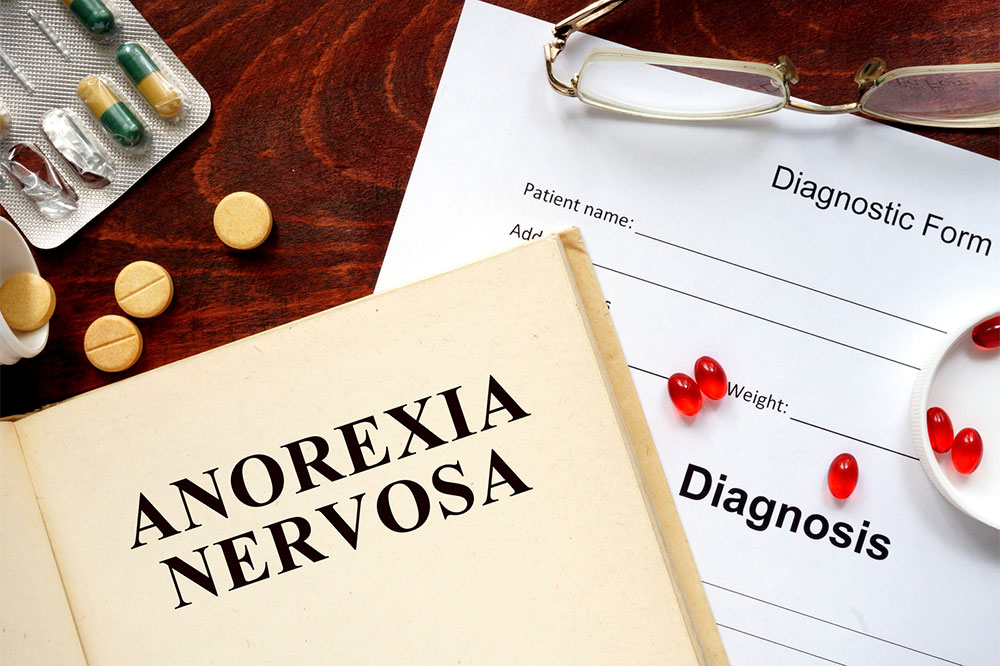
Anorexia nervosa – Its causes, symptoms, and diagnosis
Anorexia, or anorexia nervosa, is an eating disorder characterized by intentional starvation and excessive weight loss. The disorder is diagnosed when someone weighs 15% or less than their ideal body weight. Those with anorexia might feel hungry. But despite this, they will refuse to eat in fear of gaining weight. The condition can lead to several health complications if left undiagnosed and untreated. In many cases, it may even become life-threatening.
People susceptible to anorexia
Though the rate of males affected by anorexia has risen, females are more likely to develop the disorder. Furthermore, models, dancers, and actors are more prone to develop the disorder, as they feel the need to maintain appearances. Many athletes like wrestlers, boxing, and figure skaters may also get affected by anorexia.
The causes
The source of anorexia is unknown. But researchers believe certain factors may contribute to its development. They are:
- Emotions, thinking patterns, and personality traits
- Genetics
- Biological and environmental factors
- Feelings of low self-esteem, anxiety, loneliness, or inadequacy
- Troubled relationships
- Those who have a history of being bullied because of their size and weight
- Pressure from societies that associate physical appearances with beauty
- Changes in hormones may influence how the mind and body regulate a person’s thinking, mood, appetite, and memory
The symptoms
There are multiple symptoms of anorexia apart from starvation. People must see a doctor if they have any of these symptoms listed below.
- Being underweight because they eat too little
- Lack of sleep at night
- Having trouble with their bowel movements, such as constipation
- Becoming terrified of gaining weight
- Swelling in the arms or legs
- Sudden dehydration
- Establishing their self-esteem on the way their body looks
- Becoming ill frequently
- Withdrawal from their social life
If left untreated, anorexia can lead to:
- An imbalance in fluid-electrolytes
- An irregular heartbeat
- Damage of organs like the heart, kidneys, and brain
- Osteoporosis
Diagnoses
Anorexia can go undetected for a long time, making it difficult to diagnose it. However, doctors may conduct a physical exam and go through the patient’s medical history if there are potential symptoms. Blood tests may also be needed to assess the condition. Such tests allow doctors to rule out physical illness as the cause of weight loss. If no physical illness is detected, the doctor will refer the patient to a psychiatrist or psychologist. These experts are trained to diagnose and treat mental conditions and use special interview techniques and assessment tools to conclude if the patient has an eating disorder.
Treatments
Treating anorexia is challenging because not everyone is comfortable with accepting if they are affected by the condition. Sometimes, patients neglect the help offered to them in fear of becoming overweight. However, rejecting treatment can worsen the symptoms of anorexia and lead to severe forms of malnutrition, kidney failure, irregular heartbeat, and dehydration. Therefore, a person affected by anorexia nervosa must receive treatment earliest. Treating the condition requires a combination of these methods.
- Nutrition counseling
Nutrition counseling is a strategy that imparts knowledge about a healthy approach between food and weight. It helps teach the importance of nutrition from food, restore regular healthy habits, and promote a balanced lifestyle.
- Psychotherapy
A psychotherapist aims to alter the thought process and behavior of someone with anorexia nervosa. One method involves changing how a person reacts to difficult situations. Psychotherapists may also help the patient exhibit a healthy attitude towards the food they eat and their weight.
- Group therapy
Group therapy helps people with anorexia discuss their feelings and share their concerns with others who have similar symptoms or problems. Doing so will help them better deal with their condition.
- Family therapy
In family therapy, healthcare experts teach family members about the disorder. Teaching members about the signs and symptoms of the eating disorder will help them offer better care to any of their loved ones affected by the eating disorder.
- Hospitalization
Hospitalization may be required when the condition gets too severe. In such situations, weight loss can result in malnutrition or other severe physical or mental health problems. In such cases, the patient may be fed through an IV or a feeding tube.
Warning signs
It’s always best to identify the condition at an early stage. It can help the person in need on time. Detecting anorexia at the earliest may also prevent severe health conditions that require hospitalization in the future. Therefore, one must always lookout for early warning signs of anorexia, such as:
- Neglecting food or denying hunger
- Sensitivity to cold
- Excessive loss of hair
- Fatigue
- Excessive exercise
- Decay of teeth




